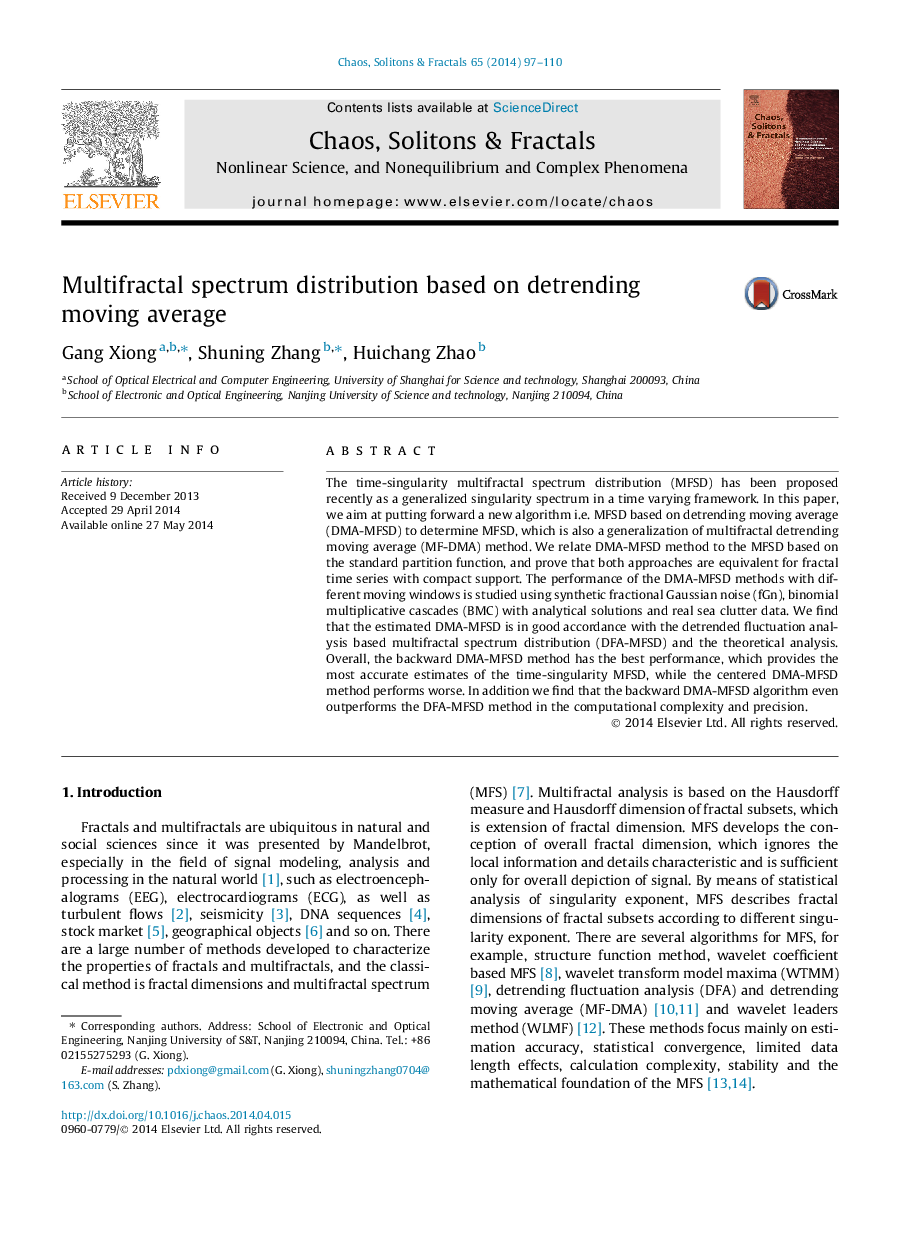| Article ID | Journal | Published Year | Pages | File Type |
|---|---|---|---|---|
| 1895516 | Chaos, Solitons & Fractals | 2014 | 14 Pages |
Abstract
The time-singularity multifractal spectrum distribution (MFSD) has been proposed recently as a generalized singularity spectrum in a time varying framework. In this paper, we aim at putting forward a new algorithm i.e. MFSD based on detrending moving average (DMA-MFSD) to determine MFSD, which is also a generalization of multifractal detrending moving average (MF-DMA) method. We relate DMA-MFSD method to the MFSD based on the standard partition function, and prove that both approaches are equivalent for fractal time series with compact support. The performance of the DMA-MFSD methods with different moving windows is studied using synthetic fractional Gaussian noise (fGn), binomial multiplicative cascades (BMC) with analytical solutions and real sea clutter data. We find that the estimated DMA-MFSD is in good accordance with the detrended fluctuation analysis based multifractal spectrum distribution (DFA-MFSD) and the theoretical analysis. Overall, the backward DMA-MFSD method has the best performance, which provides the most accurate estimates of the time-singularity MFSD, while the centered DMA-MFSD method performs worse. In addition we find that the backward DMA-MFSD algorithm even outperforms the DFA-MFSD method in the computational complexity and precision.
Related Topics
Physical Sciences and Engineering
Physics and Astronomy
Statistical and Nonlinear Physics
Authors
Gang Xiong, Shuning Zhang, Huichang Zhao,
